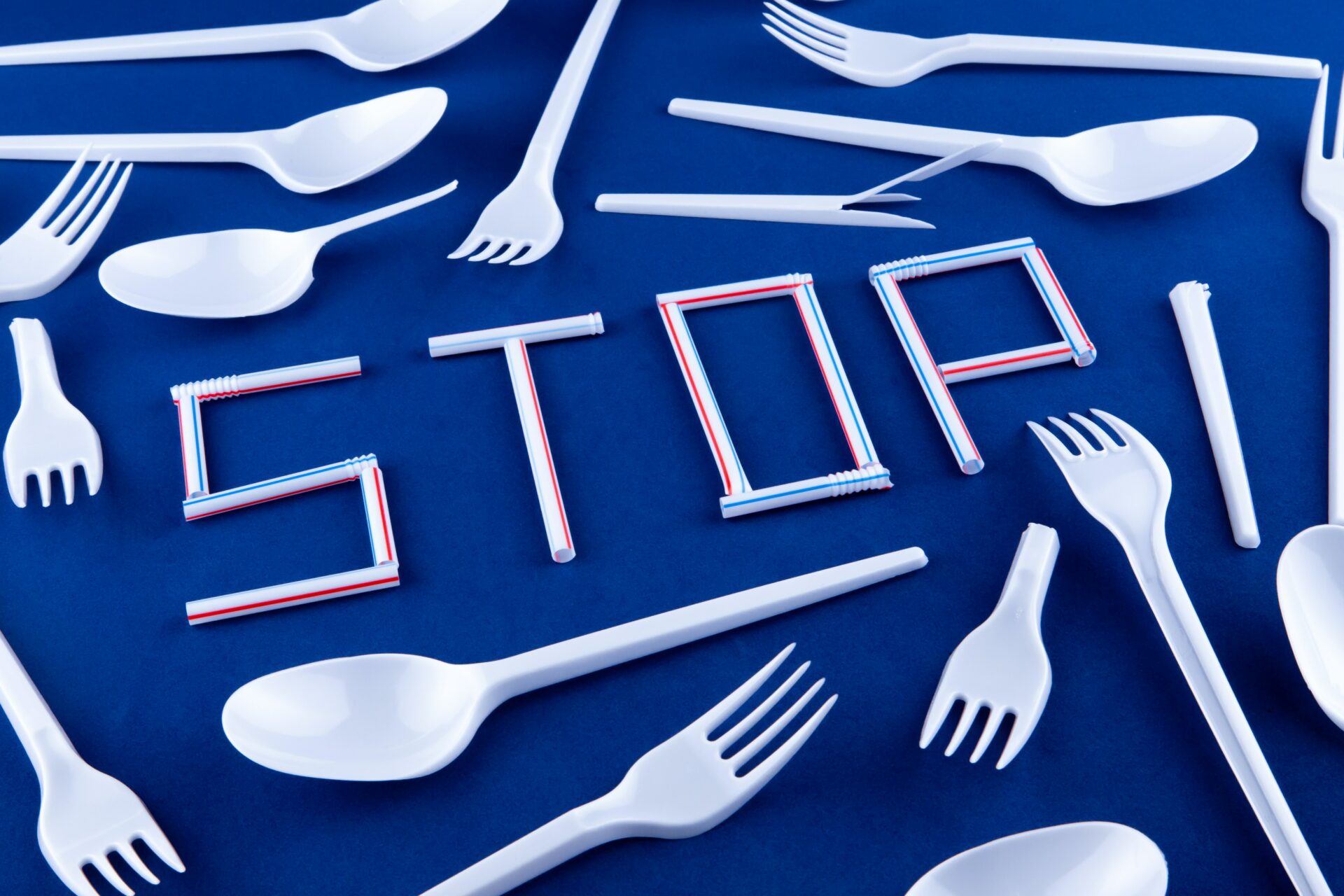The Issue
Each year, the U.S. produces around 80 million tons of packaging waste. Much of that waste is food and beverage take-out and delivery items, like plastic spoons, forks, stirrers, and straws. Not only do these single-use items tend to go unused, but they also don’t get recycled. And that’s because these items aren’t designed to be recyclable. Even if they were, our country is terrible at recycling. Right now, the U.S. only recycles 5% of the plastic we produce.
Small, unnecessary, and often unrequested foodware products wind up in landfills, incinerators, and the environment. Regardless of where they go, these single-use plastic items contribute to our waste issue, our plastic problem, and our climate crisis – all of which negatively impact human health. And that’s because plastic is toxic – from the extraction of fossil fuels needed for production to the disposal of all these single-use products.
The Model Bill
What if we could order take-out and delivery without receiving unnecessary – and unrequested – plastic foodware? Say hello to the model bill aiming to reduce single-use foodware – Skip the Stuff! How? By cultivating a reuse culture in its place.
This type of legislation requires single-use foodware to only be given to customers who request it. Think about when you place an order for delivery through DoorDash, or when you order lunch at a drive-through. Rather than single-use plastic forks, stirrers, or straws being automatically thrown into your bag, which you’ll likely just throw away, you will only be given these items if you ask for them.
It’s important for anyone who needs a plastic straw to have access to it. But for those who do not, this bill reduces a significant amount of unnecessary single-use plastics. It also lowers the demand for these materials to be excessively produced in the first place. Even better, the bill reduces expenses for restaurants who spend money purchasing single-use foodware that often goes unused. This model legislation applies to any and all restaurants, including ones inside of airports, government buildings, and event facilities. What’s more, knowing that change can happen at any level, the bill is designed to be passed at the local, county, or even state level.
Progressing Toward a Zero Waste Future
The “Skip the Stuff” bill reduces the demand for single-use items, saves businesses money, and promotes consciousness around waste. What’s more, it’s a catalyst for restaurants to move away from our single-use culture and instead, help spur our reuse future. This by-request-only bill has already passed in two states and 33 cities across the country, diverting millions of tons of waste from landfills and incinerators.
We need more “Skip the Stuff” bills to pass in cities and states across the country. Download the model legislation and contact your local city council-member or state rep to get started today.
Many environmental organizations have their own versions of model legislation for the Skip the Stuff Act. There are reuse coalitions across the country adopting various versions of this bill and contextualizing it to their needs. Our model bill is stripped down as much as possible, because we’ve found simpler bills are often easier to get across the finish line. Check out Upstream’s more comprehensive Skip the Stuff model legislation for alternative language, and Reusable Los Angeles’ website to learn more about their successful Skip the Stuff campaign.
